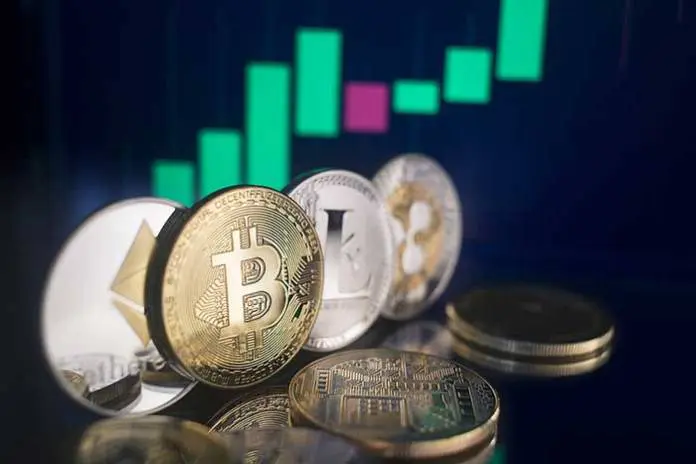
Cryptocurrencies like Bitcoin and Ethereum have become huge over the past ten years. The growth of cryptocurrency has shocked the world, as it’s all happened so fast. If you flashback to 2010, nobody knew what digital currencies were about. They’re huge global tools millions that people use for trading, transactions, and more.
Now, one of the big topics of conversation surrounding cryptocurrencies is – yep, you guessed it – regulation. Over recent years, this topic has become a major focus point across the US, Europe, and Asia, which is where cryptocurrencies are most popular.
So, are cryptocurrencies regulated?
The simple answer is no, cryptocurrencies are not regulated.
This is largely the reason why so many investors and governments are skeptical about the whole thing. After all, surely (if something isn’t regulated), it must be a recipe for chaos.
Well, in the case of crypto, it isn’t. If you take a look at OKX’s Cryptocurrency price charts, you can see that lots of cryptocurrencies are performing well in the market – despite the fact that there’s no regulation in place.
Tax payments
Of course, the world of cryptocurrency isn’t simply a ‘free-for-all’. For example, you must still pay tax on cryptocurrency. This is because Bitcoin (and other cryptocurrencies) are exchange tokens, which are methods of payment. So, if you make a profit for them, you must pay Capital Gains Tax as a result. This is despite the fact that the Internal Revenue Service (IRS) does not class crypto as legal tender but instead as a ‘digital representation of value’.
Crypto not being regulated is actually good for traders and investors
Despite the lack of regulation putting a lot of people off investing in cryptocurrency, it’s actually a good thing. Here’s why:
- Increased privacy
Due to the lack of regulation, crypto traders can transfer money and make purchases anonymously. This is because no personal details – such as names and addresses – are attached to transactions. With traditional currency and banks, this is something you can’t do digitally.
- Greater control
No regulation means no parties are in control of your investments. In a nutshell, this means they can’t take your crypto away from you at any point, as it’s yours, and they have no legal control over it.
- More Creativity
Each month, lots of new crypto blockchains (companies) make their start in the market. This is because crypto start-ups don’t need a ton of funds or investment to get off the ground, as there’s no need for centralized networks.
- More profit
If crypto were suddenly regulated by governments, then this would almost certainly drive the prices down. In turn, this then reduces profits for investors. With this in mind, it makes sense why so many people are scared of future regulations that might arrive.
The case for regulation
However, some critics point out that regulation could be good for all parties, as it will encourage big corporations and brands to start making investments. Not to mention, regulation will also boost trust levels amongst the millions of businesspeople and entrepreneurs who are still skeptical about it.











